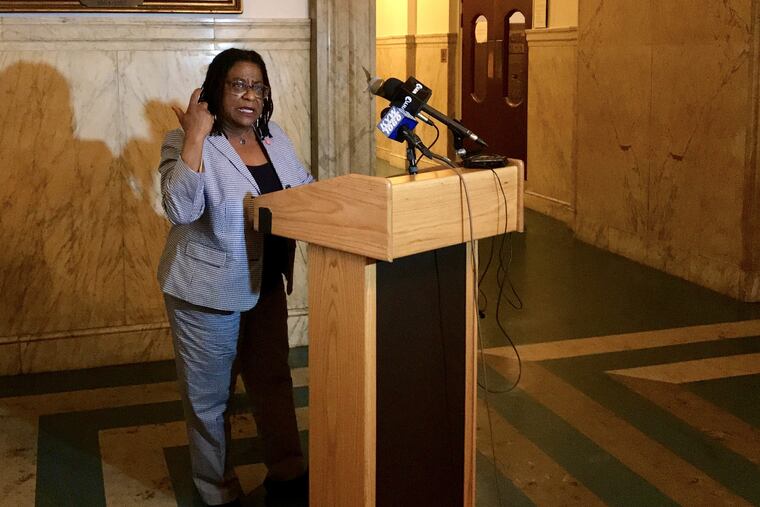Philadelphia’s low wages hurt single mothers most of all | Opinion
We need solutions to the wage gap that work for single mothers.

The latest reports confirm, yet again: Philadelphians aren't making enough money to eat.
Philadelphia is the sixth largest city in the U.S., with a median income of $39,759, while the five larger cities have a median income at or above $50,000. In 2017, Philadelphia was the only city of the 10 largest to see its median income drop from the previous year. While the cost of living rises, incomes are actually moving backward here, making it harder for Philadelphians to sustain themselves and leaving more residents financially vulnerable and on the cusp of homelessness. We know the situation is dire.
But one thing we're not talking about enough is one of the most urgently affected groups: single mothers. A 2014 report by the Strong Families Coalition found that single mothers are the heads of household for 44 percent of Philadelphia's families, more than twice the 2017 national rate of 21 percent. It's time to acknowledge the income gap for Philadelphians, with greater focus on the staggering 60 percent of single-mother households living in poverty. For Philadelphia to maintain and even increase its status as a first-class international city, we must reduce the current poverty rate that stands at more than 25 percent. We should begin by addressing the wage gap for Philadelphia's single mothers so that they are no longer making 80 cents to the dollar that a man earns.
To help these families, we must start with how they're paid. In Philadelphia, the average single mother had a median income of $21,755 in 2014, even with many working full-time. Such low pay often forces these women to invent solutions to their financial problems. On any given day, I can look across social media and see 20 GoFundMe accounts posted by single mothers, raising money for basic necessities such as food, utilities, and rent. I see these mothers reaching out to third cousins twice removed asking for $5, and I see them "joking" about passing the same $20 between themselves each month to help each other out. Single mothers are the most creative people when it comes to meeting their financial obligations. But these solutions are not sustainable. Recycling money between poor families will not bring down the poverty rate in Philadelphia.
Amid Philadelphia's patchwork fixes to address poverty through the social safety net, housing access, and job training, no efforts focus on the gender wage gap, which would most directly help single mothers. The city has tried: In 2016, City Council passed the Equity Wage Bill, an amendment to Title 9 of the Philadelphia Code, to prohibit employers in the city from asking about salary history, as women have historically been paid less than their male counterparts and employers often base pay on past salary or wage information. But the Philadelphia Chamber of Commerce joined with several large companies and institutions to file a lawsuit blocking the bill's implementation, which would have made Philadelphia the first city in the country with such a law.
As a city, we can do more to help close the wage gap that holds back single mothers, including passing a new wage equity bill. A number of groups are working to raise the minimum wage in the city through the "Fight for $15" campaign – one of the most effective strategies to close the wage gap and bring families out of poverty, especially if we aren't going to have wages that are tied to the cost of living. Reducing poverty in Philadelphia will require steps we haven't taken before, and we have a lot of options to choose from. We must make sure that single mothers have the opportunity to fulfill their financial obligations, without spending time on a weekly GoFundMe account to pay for basic needs, taking time away from their children. We can make sure single mothers have a way to become financially stable, but that won't happen unless they are paid livable wages.
Ingrid Shepard is executive director of the One Less Foundation.